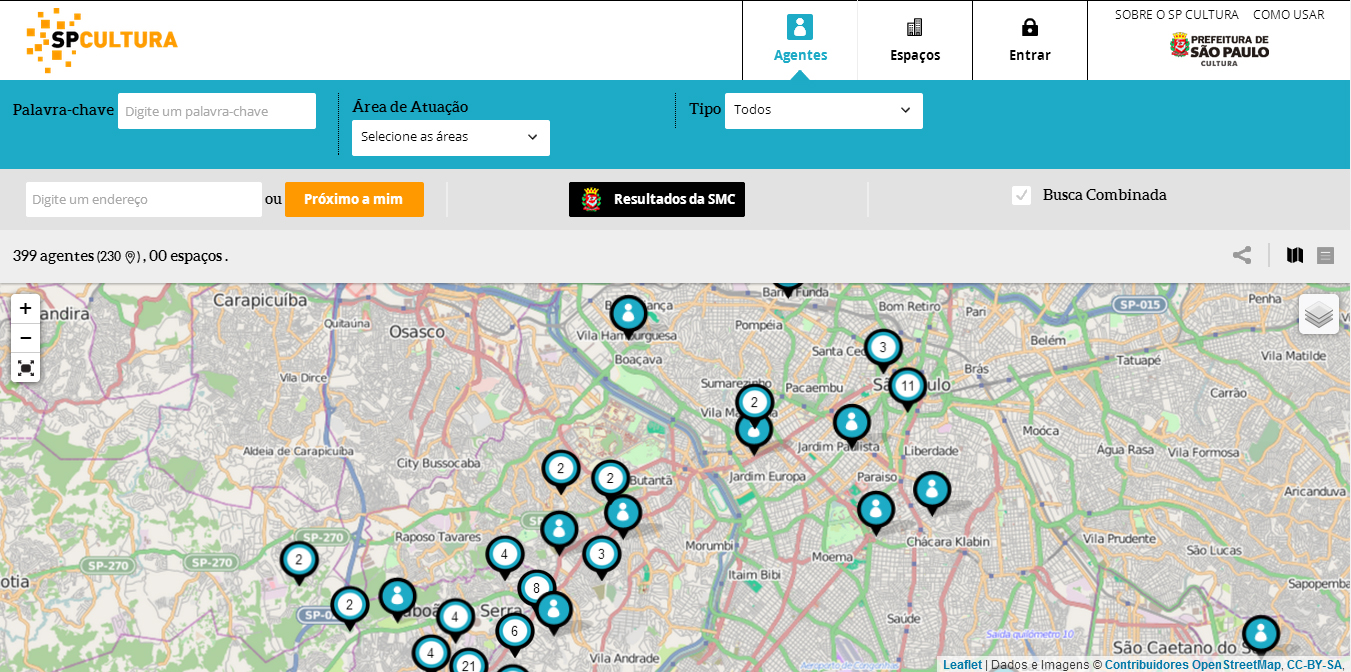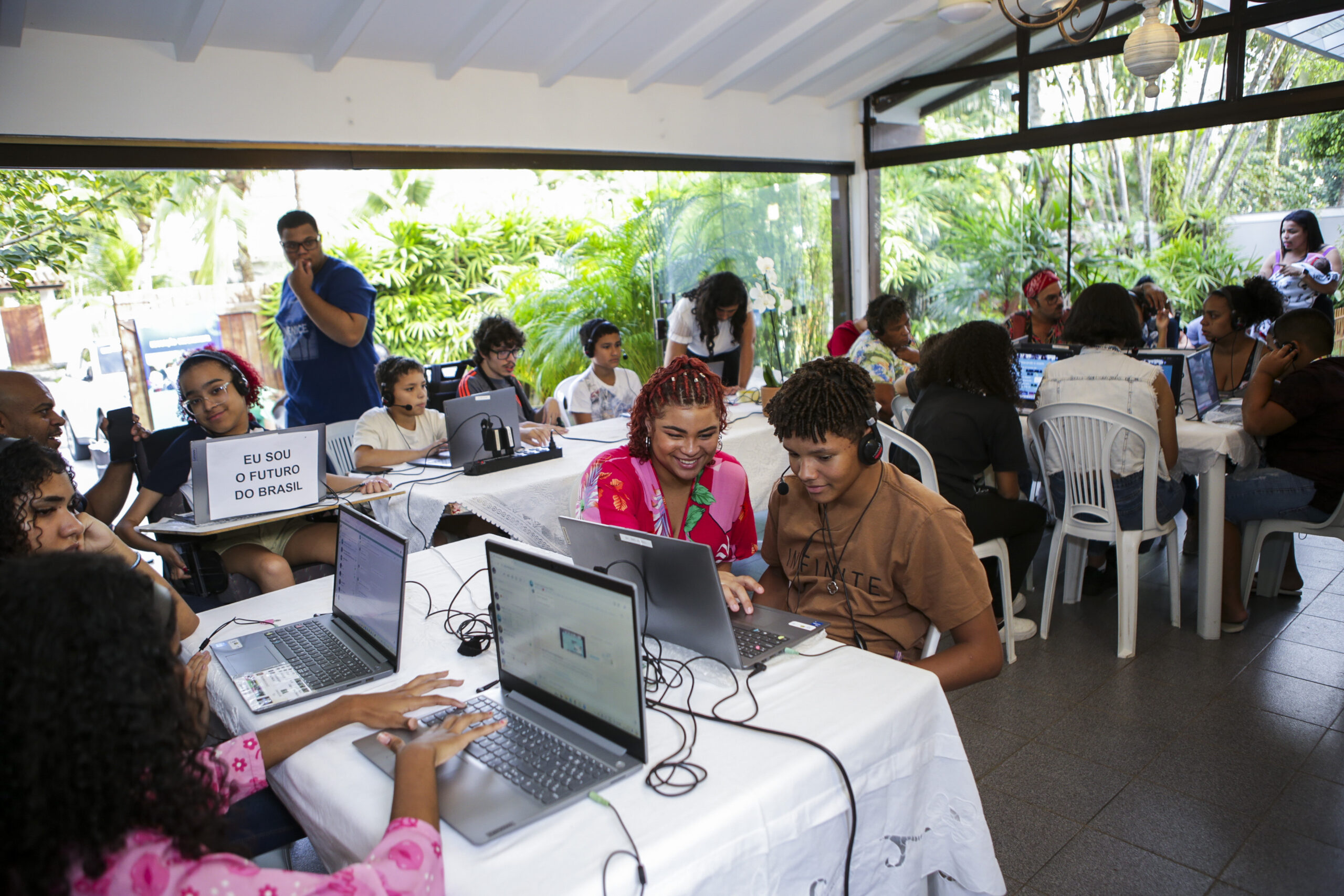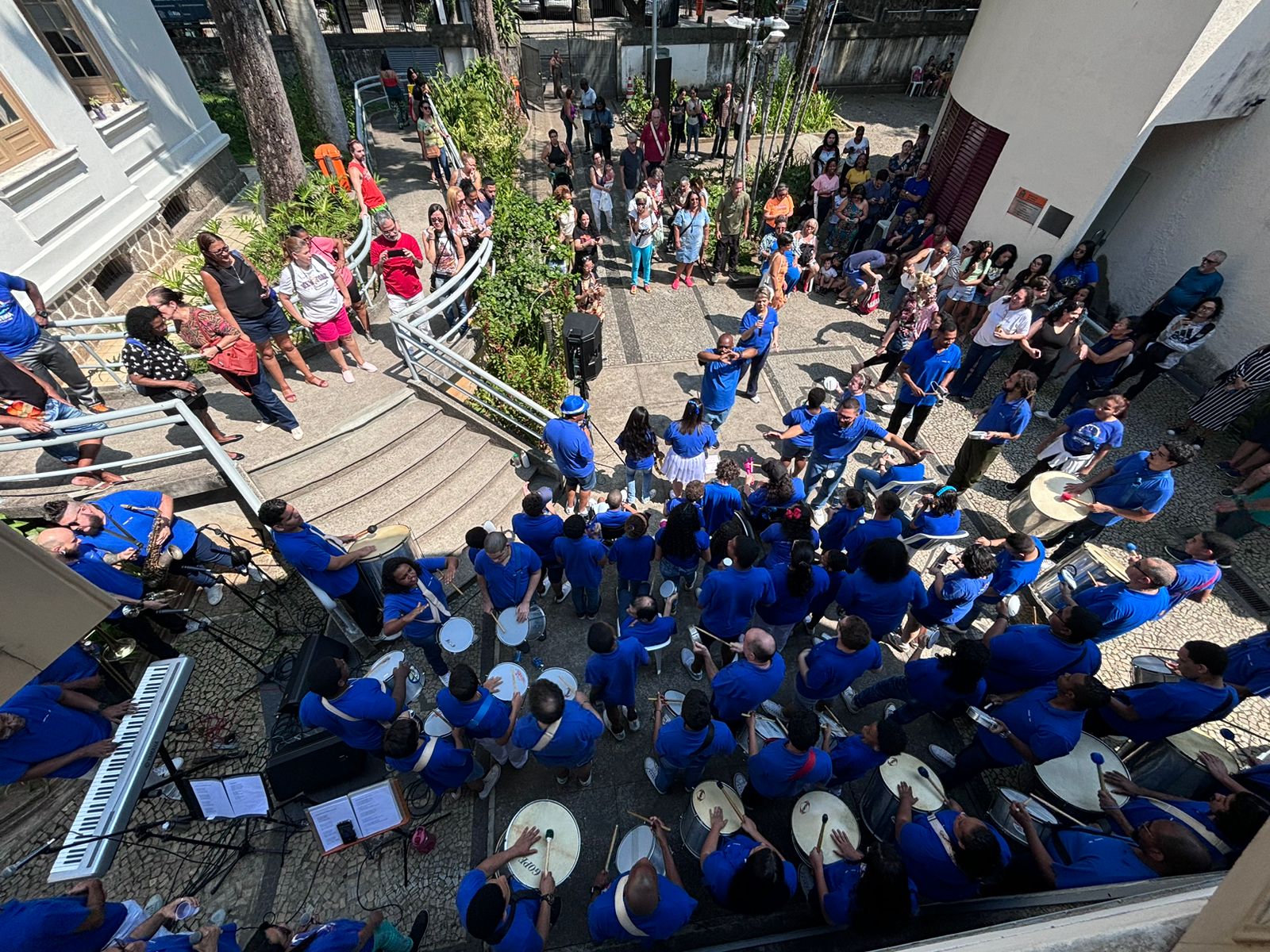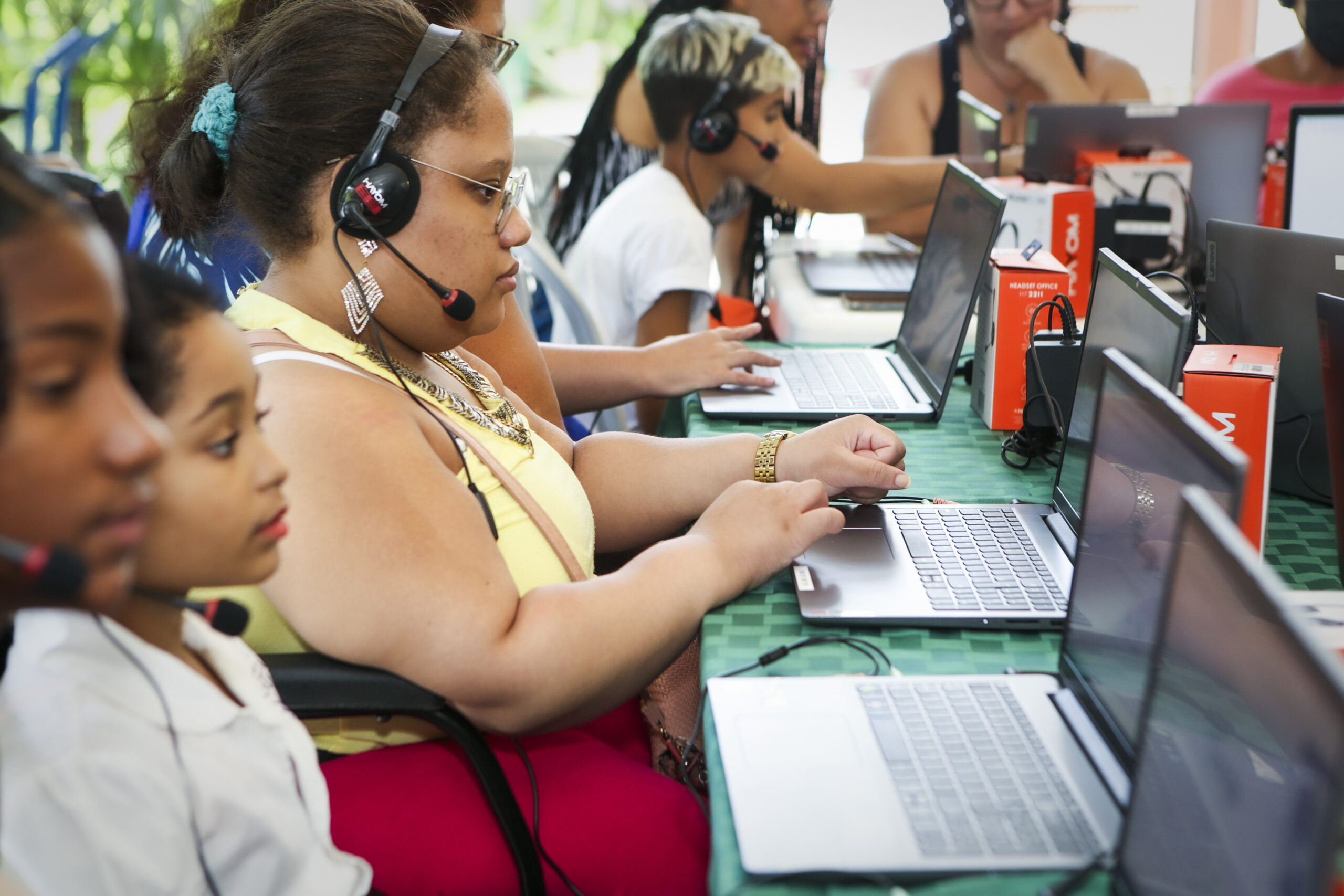
The cultural management and collaborative mapping platform, Mapas Culturais, in operation in the city of São Paulo and being extended to other municipalities in 2014, is part of a movement that brings together several collaborative cartography initiatives. Besides São Paulo, other cities – and groups – worldwide are adopting tools that help users find places to consume culture, also contributing to cultural management.
Guelph Cultural Map, a platform adopted by the city of Guelph, Canada, is an example. This is an app similar to Mapas Culturais: via login and password, users can access the tool and insert in the mapping system what is happening in the city: events, cultural sites, meetings, cultural projects, amongst other initiatives. The project began in 2012 when a group of people involved with culture entered cultural data on the platform. The users are the ones currently updating the platform.
In Brazil, there are several ongoing collaborative mapping initiatives. Some examples are Skatesquare, in which skaters send photos and information on the best places to skate (there are mapped locations in several Brazilian cities); Onde Fui Roubado, which map the locals where citizens were mugged, robbed or stolen in the over 544 cities already registered; Webdoc Graffiti, a multimedia project that includes a map of graffiti throughout São Paulo, which can be filtered by region or by author; and Mapa da Cachaça, considered by the Ministry of Culture the best cultural mapping project of 2012, which maps the cachaça and alembic in the country, with information about the history of each drink, photos, where they can be found and the producer’s contact.






































































































